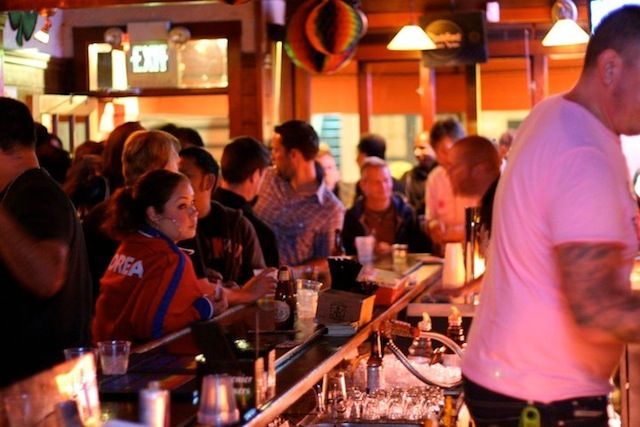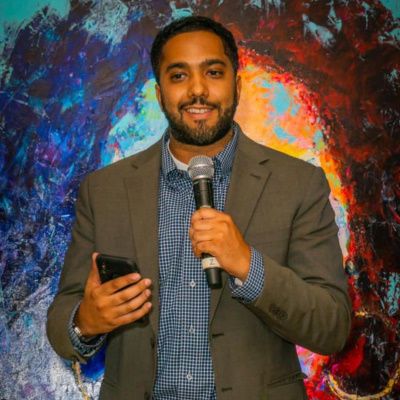Whatever you call them — bars, taverns, pubs, lounges, saloons, or night clubs — establishments focused primarily on drinking have been identified by public health experts as some of the most dangerous venues during this pandemic. And with some exceptions, most in the Bay Area remain closed six months into this unfolding pandemic.
Bars represent an ideal environment for viral spread, and there are a variety of reasons for this. Alcohol consumption results in less risk consciousness. Bars are casual settings that promote close contact between often young costumers who tend to ignore social distancing. Bars are often tightly enclosed spaces. Usually, the only regulations on the number of patrons allowed are the occupancy limits imposed by the fire marshal for other reasons. In most local jurisdictions, a 2,000-square-foot venue may legally house 100 or more patrons.

Patrons at bars raise their voices to be heard over the music or are yelling and shouting while watching sports. Experience shows that patrons are unlikely to wear masks while they are drinking — or, say, in between sips. (And as Eater reports this week, drinking establishments like the Seven Stills brewpub in Mission Bay that are open with food service and table seating have to deal with frustrated customers who feel "stressed out" by strict enforcement of mask-wearing rules, and then write negative Yelp reviews as a result.) Compounding the problem is the operational model of most establishments where the bartender handles and washes the glassware, mixes drinks, squeezes fruit, handles money, and wipes down surfaces — tasks that were always typically done without gloves or washing their hands in between.
Public health officials are in agreement that bars have played a significant role in the spread of the coronavirus. One bar in East Lansing, Michigan is credited with 185 cases of COVID-19 after one large gathering. And the Sturgis motorcycle rally that took place against all public health advice in South Dakota last month has, according to one study's estimate, seeded as many as 267,000 new COVID cases in the month since — and this was after 10 days of gatherings in crowded bars with no mask rules in Sturgis.
Governor Gavin Newsom directed all bars and nightclubs closed in California on March 15, 2020. At that time, California had recorded six fatalities and 335 COVID-19 infections. To date, California has seen 727,000 infections and 14,000 casualties, as the Bay Area's infection charts continuously rise.
The decision to reopen bars will undoubtedly involve more than public health considerations. The bar industry in California is large and labor-intensive, employing tens of thousands, with a high percentage of establishments being owner-operated. Make no mistake, it is a big business with industry revenue exceeding $2.8 billion in 2020.

Bars are especially popular in San Francisco. The city ranks 8th nationally for the size of its bar scene, with around 3,000 pre-pandemic establishments. And without them, city residents — especially those in their 20s and 30s — have gone without venues in which to meet and socialize with people outside of work, family, and friend gatherings.
I have always appreciated the communities that form in these places. A bar for many is the forum for debate, the opportunity of camaraderie, and the most modest form of therapy. Like many sports fans, I enjoy watching a good game, match, or event in the company of other fans in a bar, including those rooting for the wrong team. These collision points are the basics of common, civil discourse and I believe provide exposure to discussions involving the critical issues of our time. And unlike when entertaining at home, one can immediately switch gears after the final whistle. I am obviously not alone in my love of neighborhood bars. These establishments often serve as a gathering place for locals and add to the retail diversity of neighborhood shopping districts throughout the Bay Area.

The bar industry is not always a favored one, politically. Detractors including Mothers Against Drunk Driving (MADD) and some police organizations have spent decades working to limit how many bars exist in some locales, and even what their hours of operation can be. In Sacramento, these organizations have lobbied against the issuance of any new licenses by the Department of Alcohol Beverage Control (ABC), and in recent years they've repeatedly and successfully kept lawmakers from changing the law surrounding "last call" hours in California — State Senator Scott Wiener has continued to push for a 4 a.m. cutoff for bars and nightclubs in select cities that opt in, but the latest effort failed to pass the legislature last year.
The former mayor of Oakland, Jerry Brown, instituted zoning and ordinances which make it all but impossible to open a new alcohol-only business in Oakland. A new bar licensee typically must have food service that represents a substantial revenue stream in order for the business to be permitted. Meanwhile, in Oakland, neighborhood bars that were grandfathered in have closed at a steady rate. It is estimated that 40 neighborhood bars or more have closed in the last ten years, and the pandemic may take out dozens more.
With all this in mind, and the fact that state and local public health officials continue to view bars as vectors for contagion, patrons shouldn’t hold their breath in anticipation that their favorite watering hole will open up any time soon. States including Arizona, Florida, and Texas notably re-closed all their bars in late June after allowing them to reopen because they quickly became hotspots for viral COVID-19 transmission.
When a vaccine arrives and the pandemic is contained, it is uncertain how many bars will still be in business and able to reopen. These small businesses, many with little or no cash reserves and rent to pay, will not survive if forced to remain shuttered until sometime next year. One model that appears to be keeping some businesses afloat can be seen in San Francisco's Castro District, in which about half the bars have reopened with outdoor spaces in partnership with nearby restaurants, allowing patrons to drink at tables outside as long as they place a food order. Bars in other neighborhoods are following suit.
And on the bright side, DUIs are down statewide! And you've probably saved a bunch of money not buying $12 cocktails for the past six months.
Now, all there is to do is to raise a glass to your bar, and the people that make it much more than a watering hole. May be able to relax there again someday soon. Cheers.

Elliott Jones is a community organizer, public speaker, & philanthropist. Originally from Oakland, he has been working to help forge cultural understanding as an advocate and activist from California to Florida and every between. He is the founder of the public interest organization Ensure Progress and is also the grandson of the legendary Dr. Maya Angelou. Elliott contributes thoughts to SFist about progress in the Bay Area.
Top photo: Eaters Collective

